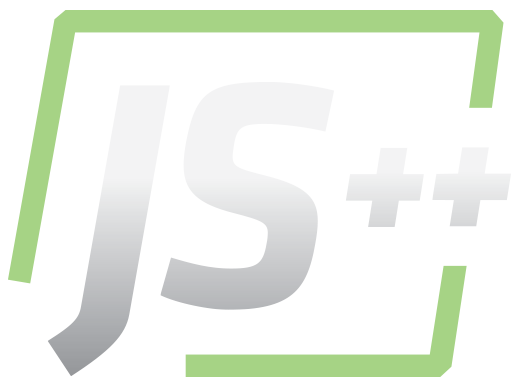JS++ type guarantees don’t just mean more reliable applications. They can also mean faster applications.
People have expressed concern about the “conversion overhead” that comes with the JS++ type system. However, we’ll show you today that having code that varies in type (such as JavaScript code) can be substantially slower, and even if you lose 1ms in JS++ “conversion overhead”, you may gain 10ms, 100ms, or more from typed optimizations that you can only get with JS++.
Here are two side-by-side benchmarks:
JS++: test.jspp
import System;
double t = (new Date).getTime();
string z;
for (int i = 0; i < 5000000; ++i) {
z += i.toString();
}
Console.log((new Date).getTime() - t);
$ time node test.jspp.js 484 real 0m0.537s user 0m0.496s sys 0m0.100s $ time node test.jspp.js 487 real 0m0.536s user 0m0.500s sys 0m0.096s $ time node test.jspp.js 488 real 0m0.536s user 0m0.508s sys 0m0.088s $ time node test.jspp.js 486 real 0m0.534s user 0m0.480s sys 0m0.116s $ time node test.jspp.js 484 real 0m0.533s user 0m0.496s sys 0m0.096s
JavaScript: test.js
var t = (new Date).getTime();
var z = "";
for (var i = 0; i < 5000000; ++i) {
z += i.toString();
}
console.log((new Date).getTime() - t);
$ time node sample.js 523 real 0m0.575s user 0m0.572s sys 0m0.076s $ time node sample.js 518 real 0m0.561s user 0m0.556s sys 0m0.072s $ time node sample.js 524 real 0m0.572s user 0m0.544s sys 0m0.092s $ time node sample.js 521 real 0m0.565s user 0m0.560s sys 0m0.076s $ time node sample.js 519 real 0m0.563s user 0m0.540s sys 0m0.088s
Specifications:
Core i7-4790k
Linux x64 (Debian)
32gb RAM
Node.js v.7.9.0 (Google V8)
JS++ v.0.5.2
Take a close look at the JS++ code and the JavaScript code. They are nearly identical except the JS++ code has types and an import statement.
In this particular case, JS++ is roughly 7.2% faster than JavaScript on a basic toString() benchmark. We do some special things under the hood here, but it should be clear that even with the perceived overhead of JS++ conversions and the much heavier overhead of auto-boxing, JS++ code is still noticeably faster. However, the topic of today's post is not about toString(). If we slightly change the JavaScript code:
var t = (new Date).getTime();
var z; // variable is no longer initialized to string
for (var i = 0; i < 5000000; ++i) {
z += i.toString();
}
console.log((new Date).getTime() - t);
$ time node sample.js 735 real 0m0.779s user 0m0.804s sys 0m0.072s $ time node sample.js 735 real 0m0.783s user 0m0.784s sys 0m0.092s $ time node sample.js 749 real 0m0.794s user 0m0.824s sys 0m0.088s $ time node sample.js 742 real 0m0.787s user 0m0.788s sys 0m0.092s $ time node sample.js 738 real 0m0.782s user 0m0.808s sys 0m0.064s
Suddenly, JS++ has jumped from being ~7% faster to being 52.2% faster.
First of all, without static typing, you lose correctness. The result of the above small change results in "undefined0123..." rather than "0123...". Therefore, while it may not be the best benchmark, it illustrates the point. Besides losing correctness, the drop in performance is substantial when types change. You often see JavaScript code written where the type constantly changes, and you can see the cost of this negligence compared to JS++.
The reason this happens is because V8 optimizes "optimistically". When you initialize your variable to a string, V8's JIT code generator will generate code optimized for strings. However, when the type changes, V8 has to "de-optimize", change the variable type, convert data, and more. These are expensive operations which highlight how performance can degrade. The example we showed today involved only one variable. Imagine the performance difference in an application with thousands of variables.
Finally, the JS++ type system is patent-pending. I've made my case clear about patents being only used for competition. Since most programmers immediately jump to conclusions, I will use this example: you can use a patented skateboard without getting in trouble with the law; however, you cannot make and sell a patented skateboard without getting in trouble with the law. If you're on the fence with JS++, don't expect to see our technologies in TypeScript, Flow, or any competing language any time soon. You're free to use them, and we encourage you to do so if your only criteria when selecting technologies are "open source" and "unpatented."
JS++ is free, closed-source software licensed under the BSD License, and the benchmarks above can be executed with the latest JS++ 0.5.2 release.
